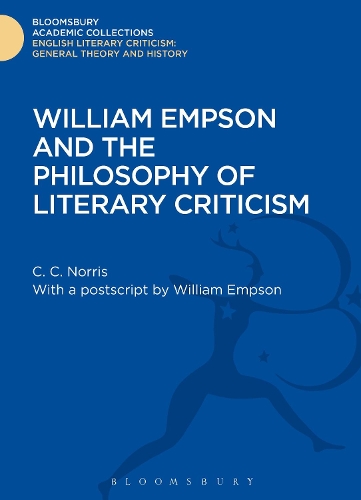
William Empson and the Philosophy of Literary Criticism
(Hardback)
Publishing Details
William Empson and the Philosophy of Literary Criticism
By (Author) Professor Christopher Norris
Bloomsbury Publishing PLC
Bloomsbury Academic
7th November 2013
United Kingdom
Classifications
Tertiary Education
Non Fiction
801.95
Physical Properties
Hardback
222
278g
Description
Following the publication of Seven Types of Ambiguity in 1930 William Empson was quickly recognised as a critic of great originality and unique creative gifts and he has inspired a whole new method and style of approach in literary criticism. But this is the first full-length study of his work and it is an important part of Dr Norriss purpose to account for the gulf that has emerged between Empsons viewpoint and the development of his ideas by others, especially the American New Critics, and for the consequent failure of Empsons later books to generate the informed discussion they demand and deserve. Here particular attention is given to his critical summa, The Structure of Complex Words. To understand Empsons work as a consistent whole, Dr Norris argues, one must relate it to his philosophy of humanistic rationalism. This is to give a new perspective not only to his practical criticism but also to his differences with Eliot and Leavis and to his anti-Christian polemic.
Author Bio
Christopher Norris is Distinguished Research Professor in Philosophy at the University of Cardiff, Wales. He is the author of numerous books on aspects of philosophy, critical theory, and modern intellectual history.
